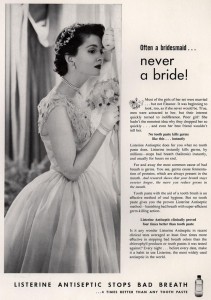No one likes rejection – unless they recognize that, used correctly, it can lead to agreements that stick. Researchers like renowned influence expert Dr. Robert Cialdini found that this truth stood out in many controlled scientific studies. One example was an experiment where Cialdini tried to encourage college students to volunteer to help troubled youth.
In this study, Dr. Cialdini wanted to see how to best get undergraduates to both  agree and follow through to chaperone a group of troubled young people on a trip to the zoo.
agree and follow through to chaperone a group of troubled young people on a trip to the zoo.
- A Direct Request group was straightforwardly asked to participate. Only 17% agreed.
- Testing the Rejection-then-Retreat technique, researchers requested that members of a second group agree to spend 2 hours/week every week for a minimum of 2 years acting as counselors for troubled youth. As expected, all refused.
- As a concession, students in that group were told, “If you can’t help as counselors, we need chaperones for an upcoming trip to the zoo.” Now 50% agreed, an increase of 294% over the group given a Direct Request.
How many actually showed up (and did not cancel or become a “no show” for the trip)?
- Direct Request Group: 50%
- Rejection-then-Retreat Group: 85%
The Rejection-then-Retreat technique nearly tripled agreements and increased the participation rate by 70%.
Is this ethical?
The Rejection-then-Retreat technique is derived from the Reciprocity Principle.This principle, which emerged from years of research, describes a fact of human nature. It’s hard-wired into our brains. The ethics of using this principle hinge on how we use it. It can be employed in ways that help others or take unfair advantage of them. The choice is ours. Those that want to enjoy the many benefits a good reputation brings will use the Reciprocity Principle in ways that work for the good of their customers, employees and community.
How Does it Work?
For the purpose of this discussion the key research-proven points on the Reciprocity Principle include:
- People automatically feel obligated to repay in kind what others have given them
- Recipients will often pay back more than they received
- The need to reciprocate is universal, motivating the majority in every culture examined
Thus, in Dr. Cialdini’s experiment, when students in the Rejection-then-Retreat group refused his large request they did something most people don’t like to do – they said NO. This influence expert refers to occasions when others tell us NO as “Moments of Influence.” When we have to say NO it makes most of us uncomfortable. We look to relieve our “cognitive dissonance” by saying YES to something else.
group refused his large request they did something most people don’t like to do – they said NO. This influence expert refers to occasions when others tell us NO as “Moments of Influence.” When we have to say NO it makes most of us uncomfortable. We look to relieve our “cognitive dissonance” by saying YES to something else.
As a result, when Cialdini or his assistant responded to their refusal with a smaller request, fully 50% of the Rejection-then-Retreat group agreed to it. And since the researcher had made a concession to them, nearly all (85%) felt obligated to follow through and show up to chaperone the trip.
Application
 As a salesperson, do you seek to close more sales and reduce cancellations? The Rejection-then-Retreat strategy may be the perfect way to accomplish these goals.
As a salesperson, do you seek to close more sales and reduce cancellations? The Rejection-then-Retreat strategy may be the perfect way to accomplish these goals.
Rather than being quick to offer a price concession, persist in first showing prospects how your product provides excellent value. Help customers see why your standard offer is a good one. Consumer research shows that a higher price is considered a hallmark of a superior product. Initially holding to it reinforces its value.
If prospects will not buy without a lower price then and only then offer to  see if you can give them a discount. If they agree to let you check, they will feel obligated to wait a reasonable time for you to return with an answer. If you come back with a lower price, your willingness to compromise makes them feel obligated to make a concession of their own. If you’ve established credibility along with good customer rapport and your discount seems reasonable, frequently the concession they make will be to accept your offer and buy.
see if you can give them a discount. If they agree to let you check, they will feel obligated to wait a reasonable time for you to return with an answer. If you come back with a lower price, your willingness to compromise makes them feel obligated to make a concession of their own. If you’ve established credibility along with good customer rapport and your discount seems reasonable, frequently the concession they make will be to accept your offer and buy.
Research has also found that the payback often exceeds the gift. Thus, as Dr. Cialdini’s study found, not only will more people accept your lesser request, but more will feel obligated to follow through.
Salespeople, executives seeking cooperation and those recruiting volunteers to help good causes can benefit greatly from mastering the Rejection-then-Retreat technique. If done ethically, asking people to agree to things that will truly benefit them and others, it can be a valuable tool that improves the lives of all involved.



 ding why people buy your product or service. It may be for its utility – what it does to help them. Or it may be how it makes them feel – directly or indirectly. Understanding this is critical in effectively marketing your product.
ding why people buy your product or service. It may be for its utility – what it does to help them. Or it may be how it makes them feel – directly or indirectly. Understanding this is critical in effectively marketing your product.